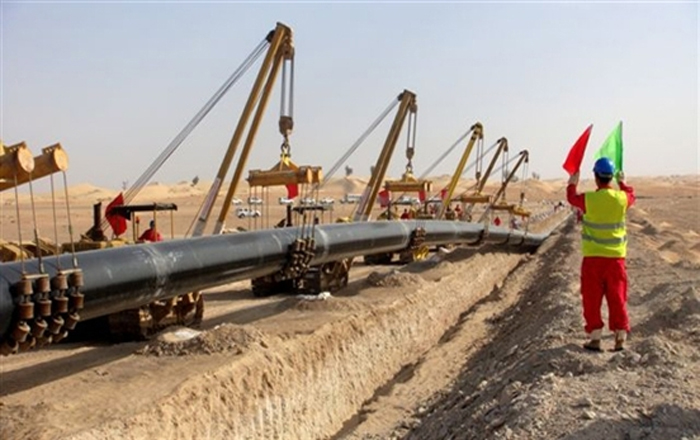ADDIS ABABA (HAN) February 12, 2016 – Public Diplomacy and Regional Stability Initiatives News. Black Rhino, a company owned by funds from United States investment firm Blackstone Group firm is gearing up to launch the construction of a 550-kilometer fuel pipeline linking landlocked Ethiopia to Djibouti.
The United States Assistant Secretary of State, Antony Blinken, told reporters Thursday that construction of the $1.55bn project will soon be launched.
Last year Ethiopia and Djibouti signed an agreement to carry on the construction of the fuel pipeline due to be completed in 2018.
When the fuel pipeline project also known as Horn of Africa pipeline (HOAP), goes operational, it will transport diesel, gasoline and jet fuel to the horn of African nation whose annual fuel demand grows at an average rate of 15%.
The pipeline project is projected to boost energy security and economic development to Ethiopia, one of the world’s fast growing economy.
After Ethiopia and Eritrean fought a two year long border war in 1998, Addis Ababa has become highly dependent on Djibouti ports to carry out its total import export trade which makes up over 90%.
Currently the country transports its imported fuel using hundreds of tanker trucks, but it is costly and time consuming ineffective to meet Ethiopia’s energy requirements.
But the new venture project is said to ease those burdens which Ethiopia says had long been setbacks to advance its economic development as much as desired.
The pipeline is expected to raise capacity significantly to 240,000 barrels per day.
Beyond securing Ethiopia’s energy security, the pipeline is also said to reduce the carbon impact of current transportation systems.
The project will be funded by Black Rhino, an US company founded to meet the critical needs for infrastructure and energy development across the African continent.
This is the second oil pipeline project Ethiopia has signed with its neighbors.
Previously Ethiopia has entered in to agreement to construct a massive transportation corridor project aimed to link Kenya to South Sudan and Ethiopia.
The $22bn Lamu-Southern Sudan-Ethiopia Transport (LAPSSET) Corridor project, currently under construction, seeks to advance transportation network, boost the volume of cross-border trade across the region to boost socio-economic development.
It will also open business and investment opportunities and further will have enormous savings on transport and shipping costs as well as transit time.
The project’s main section is Lamu Port, which will have a road network linking Kenya, Ethiopia and South Sudan, but it also incorporates a port at Manda Bay, a standard gauge railway line to Juba, oil pipelines, a refinery at Bargoni and three airports.
Sudantribune

Leave a Reply